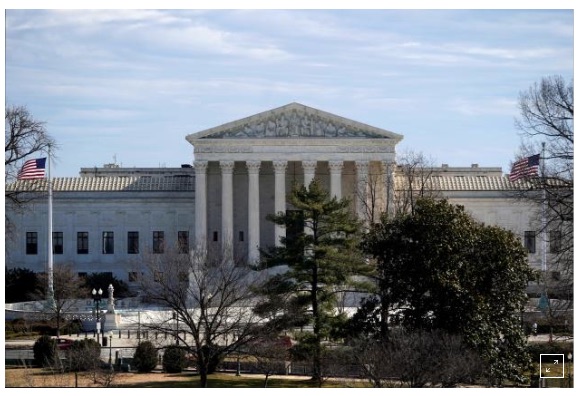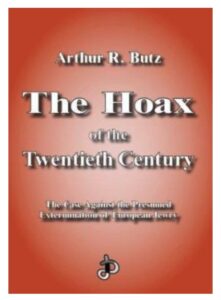David Savage
[Editor’s note: What could be more obvious–when you consider that electoral votes and federal largess are allocated on the basis of population counts–that Democrat Party officials in states like California, Texas, New York and Florida would support open borders and unrestricted immigration because it benefits them politically. None of the debate over the wall makes sense until you factor in the political advantages the Democrats derive from having large numbers of illegal aliens present to inflate the population numbers and enhance their political clout. The US census should obviously measure how many US residents are actual US citizens. That is the underly issue. The Democrats are going all out to maintain a political advantage. The only principle involved is preserving raw political power.]
The Supreme Court agreed Friday to rule by this summer on the Trump administration’s plan to add a citizenship question to the 2020 census, dealing a potential political blow to California and other states with large numbers of immigrants.
The outcome could tilt political clout in the next decade away from states and urban areas with fast-growing populations of foreign-born residents.
Data from the once-a-decade count is used to divide up political power among and within states as well as to distribute federal funds. Political experts believe the citizenship question could drive down the population count in states like California, Texas, Florida, New York, Illinois and Arizona. Cities like Los Angeles, Chicago and Houston could lose both funding and political clout within their states.
Democratic officials and Latino activists have accused President Trump of creating a climate of fear among immigrants, and say millions of immigrant families may refuse to fill out the census forms if they are asked to name occupants who are not U.S. citizens.
In a brief order, the justices granted a request from Trump’s lawyers to bypass the appellate courts and decide the issue on a fast-track basis.
The court said it would hear the case of Department of Commerce vs. New York in late April. They will review a ruling by Judge Jesse Furman in New York, who issued a 277-page opinion last month that rebuked Commerce Secretary Wilbur Ross for ignoring census experts and adopting an untested question that was proposed by White House political advisors. He ruled Ross’ decision was “arbitrary and capricious” and in violation of the Administrative Procedures Act.
But Solicitor Gen. Noel Francisco, representing the Trump administration, argued that Congress had given the Commerce secretary broad power to conduct the census “in such form and content as he may determine,” quoting the words of the statute. He had urged the high court to resolve the census dispute by June because the government is due to begin printing the forms that will be mailed to all the households across the nation.
The administration has reason to be confident it will prevail before the conservative-leaning high court. The political impact could be significant.
Political scientists testified that California stood to lose at least one and as many as three seats in Congress — and the same number of electoral votes — if the citizenship question were added to the census.
“Adding a citizenship question to the census would cause incalculable damage to our democracy,” Dale Ho, director of the American Civil Liberties Union’s Voting Rights Project, said Friday. “The evidence presented at trial exposed this was the Trump administration’s plan from the get-go. We look forward to defending our trial court victory in the Supreme Court.”
Civil rights advocates joined Democratic state attorneys in urging the court to block the Trump plan. “The record in the cases provides overwhelming evidence that the administration’s goal in adding a citizenship question was to discourage and deter immigrants and communities of color from participating,” said Kristen Clarke, president of the Lawyers’ Committee for Civil Rights Under Law. “At the end of the day, the census count stands as one of the most critical constitutional functions our federal government performs and this administration has taken extraordinary steps to jeopardize the possibility of achieving a full and fair count.”
The legal dispute is the latest of many that pits Trump against California, New York and other blue states.
The Constitution calls for an “actual enumeration” of the nation’s population every 10 years, and the 14th Amendment, adopted after the Civil War, said representation in Congress shall be determined by “counting the whole number of persons in each state.” This replaced the infamous “three-fifths” clause which had allowed the Southern states to swell their political clout by counting enslaved persons as three-fifths of a person.
The reference to “whole persons” has been understood to mean that everyone residing in the United States is to be counted in the census, regardless of their citizenship status.
Prior to 1950, the census had asked Americans about their place of birth and citizenship status. Since then, however, that information has been asked of only a statistical sample of the population.
Last year, Ross overruled experts at the Census Bureau and announced he had decided to “reinstate a citizenship question” on the census to provide “block level citizenship voting age population” data. This will “permit more effective enforcement” of the Voting Rights Act and “protect minority population voting rights,” he said.
Veteran voting rights lawyers discounted this explanation.They said the 1965 law had been enforced throughout its history without a need for precise, block-level counts of citizens.
Democratic state attorneys in California, New York and 17 other states filed lawsuits to block the change. Emails released during the litigation revealed that Ross had met with then-White House political strategist Stephen K. Bannon and Kansas Secretary of State Kris Kobach to discuss adding the citizenship question to the census. This was early in 2017, and they “discussed the potential effect on ‘congressional apportionment’ of adding ‘one simple question’ to the census,” Judge Furman wrote.
Republican-dominated states like Texas may find something to like in a ruling that upholds the collection of citizenship data. The Lone Star State, like California, could lose representation in Congress if its total population shrinks in comparison to other states. But using citizenship data could help Republicans in Texas maintain power within the state.
Conservative legal activists have argued for distributing electoral power within states based on citizenship data, not the total population. This would shift power toward suburbs where Republicans have remained strong and away from urban areas where immigrants have fueled gains by Democrats.
Three years ago, the Supreme Court heard a Texas case, Evenwel vs. Abbott, and ruled states may continue to use total population data to draw their voting districts. But the court did not foreclose states from using citizenship data instead in the future.
Edward Blum, the self-described architect of the Texas case, says he expects some states will use the block-level citizenship data if it is available in 2021.
“Just from casual conversations with political types, I think a handful of states — Texas and Florida — will use some metric of citizenship for legislative redistricting if the data is available,” he said.




There are many reasons for U S citizens to not give their information on a census form.
Illiegal aliens no way get anywhere near a census form
For those illegal aliens that do fill out the form even fewer would honestly give their non-citizen status information.
Yes, getting more information and data, no matter how little, is always good.
It just is much ado about not much. We are invaded by hundreds of thousands of people who live in an underground economy and do not assimilate and that is what the plan is.
If illegal aliens want to vote there are so many holes in the voter registration procedures that that would be no problem at all. Then there is huge opportunity for vote counting fraud and no oversight or audit there, and I will not even talk about black box voting machine fraud where one push of a button moves thousands of votes.
Lastly, a wall will help substantially but the rules are to let the people in to apply for asylum, even if asylum is denied, the person is home free in the USA, after living in at taxpayer expense for several weeks and then let go free when the application is denied or the shelter cannot hold any more.. I have never heard of anyone put back over the border into Mexico.
The bad bill that the president just signed is a boon to child trafficking and anyone already here can just claim they are the sponsor of an unaccompanied minor and they are home free too.
All I can do is pray for the president as it appears that he is under heavy heavy blackmail and extortion.
Many of congress members and judges are on the take for child sex trafficking money.
One world death and slavery system for all, here we come.
No on else seems to have come across this, so I guess I will post it….explains much….
Statement by the President
Today, I have signed into law H.J. Res. 31, the “Consolidated Appropriations Act, 2019” (the “Act”), which authorizes appropriations to fund the operation of a number of agencies in the Federal Government through September 30, 2019.
Certain provisions of the Act (such as Division F, under the heading “Contribution for International Peacekeeping Activities”) would require advance notice to the Congress before the President may direct certain military actions or provide certain forms of military assistance. In signing the Act, I reiterate the well-established understanding of the executive branch that these types of provisions encompass only military actions for which providing advance notice is feasible and consistent with the President’s constitutional authority and duty as Commander in Chief to ensure national security. In addition, Division C, section 527, and Division A, section 516, both restrict the transfer of Guantanamo detainees to the United States. I will treat these, and similar provisions, consistent with the President’s constitutional authority as Commander in Chief.
Numerous provisions could, in certain circumstances, interfere with the exercise of the President’s constitutional authorities to negotiate international agreements (such as Division C, sections 509, 518, and 530; and Division F, sections 7010(c) and 7013(a)), to articulate the position of the United States in international fora (such as Division F, sections 7025(c), 7029(a), (b)(1), 7031(d)(2), 7042(h)(1), 7043(g)(1), 7047(b)(3), 7054(b), and 7060(c)(2)(D), (3)), to receive ambassadors (such as Division F, section 7031(c)), and to recognize foreign governments (such as Division F, section 7047(b)(2)(A)). My Administration will treat each of these provisions consistent with the President’s constitutional authorities with respect to foreign relations.
Division C, section 537, provides that the Department of Justice may not use any funds to prevent implementation of medical marijuana laws by various States and territories. I will treat this provision consistent with the President’s constitutional responsibility to faithfully execute the laws of the United States.
Certain provisions within Division D, title II, under the heading “Office of Management and Budget – Salaries and Expenses” impose restrictions on supervision by the Office of Management and Budget (OMB) of work performed by executive departments and agencies, including provisos that no funds made available to OMB “may be expended for the altering of the annual work plan developed by the Corps of Engineers for submission to the Committees on Appropriations”; that “none of the funds provided in this or prior Acts shall be used, directly or indirectly, by the Office of Management and Budget, for evaluating or determining if water resource project or study reports submitted by the Chief of Engineers acting through the Secretary of the Army are in compliance with all applicable laws, regulations, and requirements relevant to the Civil Works water resource planning process”; and that “none of the funds appropriated in this Act for the Office of Management and Budget may be used for the purpose of reviewing any agricultural marketing orders or any activities or regulations under the provisions of the Agricultural Marketing Agreement Act of 1937 (7 U.S.C. 601 et seq.).” The President has well-established authority to supervise and oversee the executive branch and to rely on subordinates, including aides within the Executive Office of the President, to assist in supervising the executive branch. Legislation that significantly impedes the President’s ability to supervise the executive branch or obtain the assistance of aides in this function violates the separation of powers by undermining the President’s ability to fulfill his constitutional responsibilities, including the responsibility to faithfully execute the laws of the United States. My Administration will, therefore, construe these restrictions in Division C, title II consistent with these Presidential duties.
Several provisions (such as Division F, section 7041(b)(3)) mandate or regulate the submission of certain executive branch information to the Congress. I will treat these provisions in a manner consistent with the President’s constitutional authority to withhold information that could impair foreign relations, national security, the deliberative processes of the executive branch, or the performance of the President’s constitutional duties. In particular, Division D, section 713, prohibits the use of appropriations to pay the salary of any Federal officer or employee who interferes with or prohibits certain official communications between Federal employees and Members of Congress or of any Federal officer or employee who takes adverse action against an officer or employee because of such communications. I will construe these provisions not to apply to circumstances that would detract from my authority to supervise, control, and correct communications by Federal officers and employees with the Congress related to their official duties, including in cases where such communications would be unlawful or could reveal confidential information protected by executive privilege.
Certain provisions (such as Division F, section 7064; and Division G, section 418) prohibit the use of funds to deny an Inspector General access to agency records or documents. I will construe these, and similar provisions, consistent with my authority to control the dissemination of information protected by executive privilege.
Certain provisions prohibit the use of funds to recommend certain legislation to the Congress (Division B, section 715), or require recommendations of certain legislation to the Congress (Division A, section 537). Because the Constitution gives the President the authority to recommend “such Measures as he shall judge necessary and expedient”, my Administration will continue the practice of treating provisions like these as advisory and non-binding.
Numerous provisions purport, in certain circumstances, to condition the authority of officers to spend or reallocate funds on the approval of congressional committees (Division B, sections 702, 706, and 716(a), (b); Division E, sections 403 and 409; Division G, sections 188, 405, and 406). These are impermissible forms of congressional aggrandizement in the execution of the laws other than by the enactment of statutes. My Administration will make appropriate efforts to notify the relevant committees before taking the specified actions and will accord the recommendations of such committees all appropriate and serious consideration, but it will not treat spending decisions as dependent on the approval of congressional committees.
Trump’s order is a violation of the Posse Comitatus Act which you have warned about for years. It is also, obviously, a violation of the Constitution. Are you still supporting this man?
You’ll have to do better than that. Maintaining our borders is an obvious issue of national security. Posse Comitatus precludes the use of the military to perform police functions. One could debate the question, as you are doing here, but I expect the Supreme Court will uphold his actions when they make their way to legal resolution.
Here’s some perspective contrary to Fetzer’s delusions: https://www.wsws.org/en/articles/2019/02/16/pers-f16.html
It is a nonsense to argue that people in this country illegally should be counted in a census that determines, among other things, political factors of the nation. Stop your sophistic spouting.